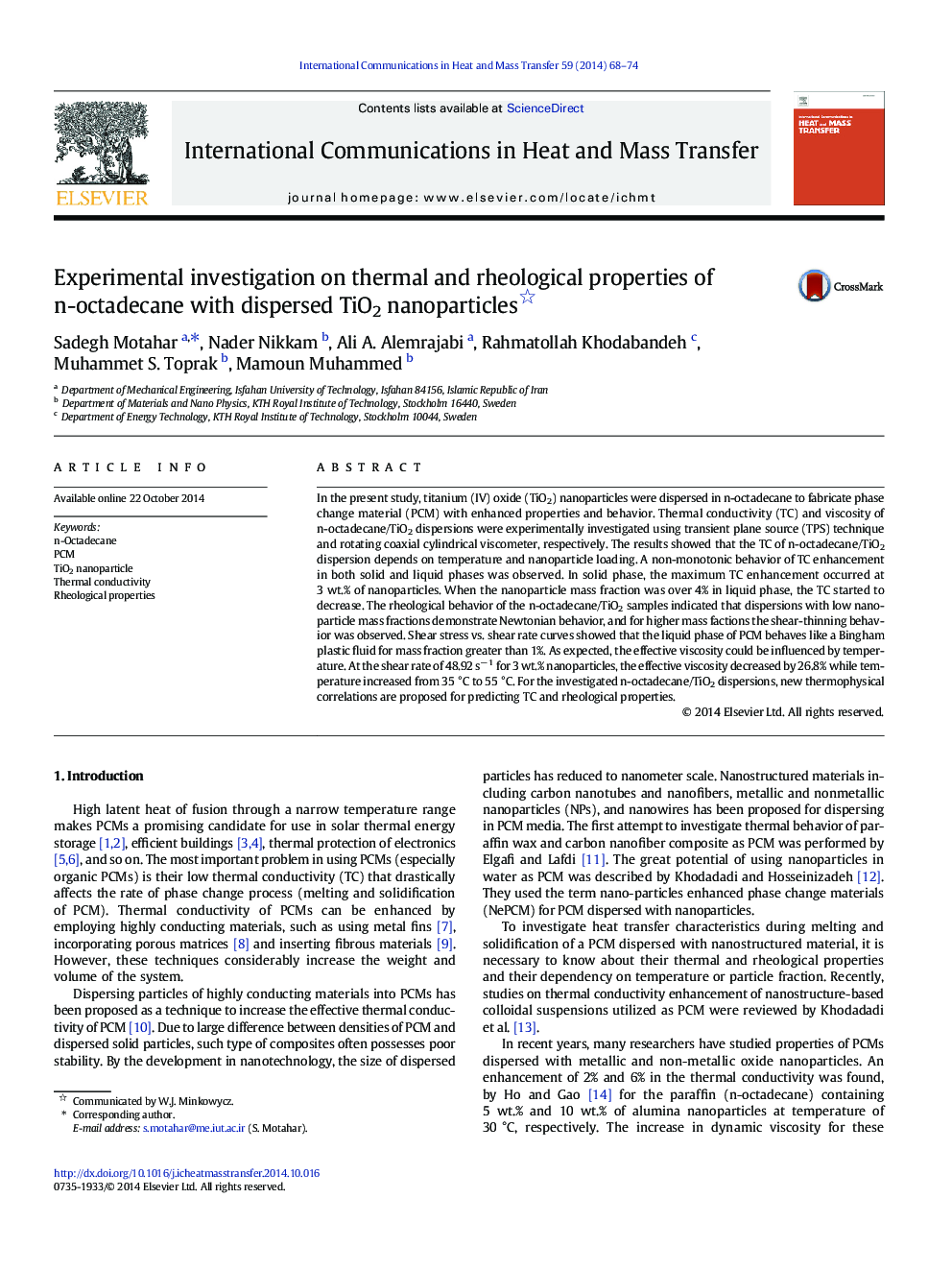| Article ID | Journal | Published Year | Pages | File Type |
|---|---|---|---|---|
| 653206 | International Communications in Heat and Mass Transfer | 2014 | 7 Pages |
Abstract
In the present study, titanium (IV) oxide (TiO2) nanoparticles were dispersed in n-octadecane to fabricate phase change material (PCM) with enhanced properties and behavior. Thermal conductivity (TC) and viscosity of n-octadecane/TiO2 dispersions were experimentally investigated using transient plane source (TPS) technique and rotating coaxial cylindrical viscometer, respectively. The results showed that the TC of n-octadecane/TiO2 dispersion depends on temperature and nanoparticle loading. A non-monotonic behavior of TC enhancement in both solid and liquid phases was observed. In solid phase, the maximum TC enhancement occurred at 3 wt.% of nanoparticles. When the nanoparticle mass fraction was over 4% in liquid phase, the TC started to decrease. The rheological behavior of the n-octadecane/TiO2 samples indicated that dispersions with low nanoparticle mass fractions demonstrate Newtonian behavior, and for higher mass factions the shear-thinning behavior was observed. Shear stress vs. shear rate curves showed that the liquid phase of PCM behaves like a Bingham plastic fluid for mass fraction greater than 1%. As expected, the effective viscosity could be influenced by temperature. At the shear rate of 48.92 sâ 1 for 3 wt.% nanoparticles, the effective viscosity decreased by 26.8% while temperature increased from 35 °C to 55 °C. For the investigated n-octadecane/TiO2 dispersions, new thermophysical correlations are proposed for predicting TC and rheological properties.
Related Topics
Physical Sciences and Engineering
Chemical Engineering
Fluid Flow and Transfer Processes
Authors
Sadegh Motahar, Nader Nikkam, Ali A. Alemrajabi, Rahmatollah Khodabandeh, Muhammet S. Toprak, Mamoun Muhammed,
